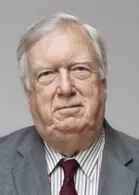
Edward W. Schlag, Ph.D. †
Prof. Dr. rer. nat. Dr. h.c.
TUM Department of Chemistry
Former professor of physical chemistry
born January 12, 1932
CV
Edward W. Schlag conducted the first applications of static reaction theory in quantum form on chemical reactions and was able to demonstrate that, contrary to the assumption of the generally accepted tension theory, a reaction can reclose small ring molecules such as cyclo-propane. Dr Ahmed Zewail’s direct measurements confirmed this finding, for which he received the Nobel Prize in Chemistry in 1999. Later Edward W. Schlag conducted the first experiments to measure rate constants of excited molecules in an isolated system without external disturbance and under various types of energy, which led to a basis for a theory of radiationless processes. Additionally, he worked intensively on the development of new spec-troscopic methods, which came to be used in many diverse research laboratories across the globe. In particular, using REMPI (Resonance-Enhanced Multi-Photon Ionization) spectroscopy – developed simultaneously by him and Richard B. Bernstein – it could be demonstrated that intermediate resonance could lead the way to a precise selection of molecular spectra. Edward W. Schlag also discovered that highly excited Rydberg states – contrary to previous assumptions – aren’t short lived but extremely long lasting. Their identification led to a new, high-resolution ion spectroscopy: Zero Kinetic Energy Spectroscopy (ZEKE). Edward W. Schlag, together with William B. Peatman, identified ZEKE states. In tandem with Klaus Müller-Dethlefs, he improved test resolution using pulsed laser methods. Together with his team, Edward W. Schlag conducted high-resolution sub-Doppler spectroscopy on molecules and was the first in the world to observe very weak rovibronic states and coupling. Most recently he was successful in obtaining evidence of very high-speed charge transport in proteins on a femtosecond timescale. Edward W. Schlag has always kept the quality and originality of his academic work at the highest international level, thereby prefiguring by many years the internationalization of research and teaching sought after by TUM today.
Short biography
| 1949 – 1953 | Occidental College, Los Angeles, California, USA |
| 1953 – 1958 | Doctorate in reaction kinetics, University of Washington, USA |
| 1959 | Work engagement at du Pont de Nemours, Buffalo, New York, USA |
| 1960 – 1963 | Assistant professor, Northwestern University, Evanston, Illinois, USA |
| 1964 | Associate professor, Northwestern University, Evanston, Illinois, USA |
| 1964 – 1971 | Full professor, Northwestern University, Evanston, Illinois, USA |
| 1971 – 2000 | Professor of physical chemistry, TUM |
Memberships and honors
Alfred P. Sloan Fellow (1965)
Member of the Bavarian Academy of Sciences and Humanities (since 1978)
Member of the Academia Europaea (since 1998)
Member of the National Fulbright Committee for Germany
Member of the German-Israeli Academic Committee of the Minerva Foundation of the Max Planck Society
Chair of the board of management of the Fritz Haber Center for Molecular Dynamics, Hebrew University, Jerusalem, Israel
Member of the selection committee for the US Senior Scientist Award Program of the Alexander von Humboldt Foundation
Fellow of the American Physical Society
Visiting professorships
Woodward lecturer, Yale University, USA (1987)
Fritz Haber lecturer, Hebrew University, Jerusalem, Israel (1988)
Ames lecturer, University of Edinburgh, Scotland, UK (1990)
Guest lecturer, the Welch Foundation Conference (1994)
John Wilfred Linnett visiting professor of chemistry, Cambridge University, UK (1995)
Charles M. Knight lecturer, University of Akron, Ohio, USA (1996)
Bonhoeffer-Eucken-Scheibe lecturer of the German Bunsen Society for Physical Chemistry (DBG) (1997)
James Franck lecturer, Israel Academy of Sciences, Jerusalem, Israel (1998)
CRC lecturer, California Institute of Technology, USA (1999)
Awards
- Honorary doctorate from the Hebrew University, Jerusalem, Israel (1988)
- Gold Honorary J. Heyrovsky Medal from the Academy of Sciences of the Czech Republic (1993)
- Werner-Heisenberg-Medal from the Alexander von Humboldt Foundation (2001)
You can download "Explanations of honors and awards" here [PDF]